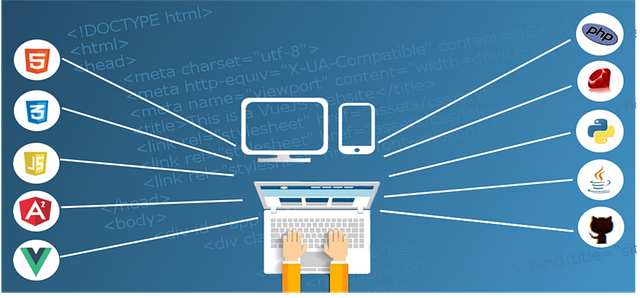What is SAP? Is it considered as an ERP system? How does it vary from other enterprise software? Such questions often come up when looking to leverage technology for business growth or automation. These inquiries not only highlight the curiosity regarding system applications and products but also underscore the vast utilizations of enterprise resource planning (ERP) systems in progressive industries.
Recent literature suggests some common misconceptions and confusion about SAP being an ERP system (Laudon & Laudon, 2020; Monk & Wagner, 2006). This confusion stems from the broad spectrum of functionalities that SAP provides. These resources go far beyond typical ERP systems and can create confusion, especially for non-technical decision-makers. To clarify this issue and prevent potential resource misallocations, a thorough examination of SAP versus traditional ERP systems is required.
In this article, you will learn about SAP and its core functions. The differences and similarities between traditional ERP systems and SAP will be thoroughly analyzed. More importantly, the benefits and drawbacks associated with both will be detailed to provide a clear understanding of their appropriate application in different industrial settings.
You will also be guided through the specific scenarios in which one exceeds the other in performance and efficiency. This insightful article aims to clarify the blurred lines between SAP and ERP systems, paving the way for better-informed decisions in leveraging technology for business growth and automation.

Understanding the Key Definitions: SAP and ERP Systems
SAP is an acronym for Systems, Applications, and Products in Data Processing. It is a globally renowned software corporation based in Germany that creates software solutions for managing business operations and customer relationships. The principal product of SAP is indeed an ERP (Enterprise Resource Planning) system. This is a type of comprehensive management software that organizations use to manage and integrate their key operations. An ERP integrates different functional areas like finance, supply chain, operations, reporting, manufacturing, and human resources into one complete system to streamline processes and data across the organization. In essence, SAP provides the software, and ERP is one of its key functionalities.
Unmasking the Identity: SAP as an ERP System
The Dynamics of SAP as an ERP System
The heart of modern organizations’ operational efficiency undeniably lies within their utilisation of Enterprise Resource Planning (ERP) systems. SAP, the German multinational powerhouse stands as an unrivalled leader within this domain, consistently providing innovative solutions to streamline business processes. Leveraging SAP as your ERP system primarily translates into maximizing your organization’s potential by integrating key business functions.
Business enterprise applications
Microsoft 365 Apps for Enterprise
Enterprise Business apps generator
Primarily, SAP’s ERP offers a holistic overview of the core business processes in real-time, which are all tied programmatically to a common database. This synchronization allows an optimization of the flow of information, leading to a substantial increase in workload efficiency. Furthermore, SAP features expedient applications, enabling large corporations to benefit from custom software tailored to their needs directly from the SAP suite, making it a uniquely versatile ERP solution.
Unmatched Advantages of Utilizing SAP
Through harnessing the power of SAP, organizations are able to revolutionize the effective management of their data systems. It provides an integrated platform that encourages better decision-making, supported by real-time data, which helps accelerate response times towards fluctuating market conditions, hence yielding more profitable outcomes.
Taking a deeper dive into the SAP system, one can categorise its advantages as discussed below:
- Improved Efficiency: It automates daily business operations, allowing systematic and coherent workflow management. This ultimately minimizes manual labour and mitigates errors.
- Integrated Data System: It offers a unified system that breaks down information silos between departments, providing an integrated bird’s-eye view of holistic operations in real time.
- Customization: SAP’s ERP is not a one size fits all. Each organization can customize its parameters to suit its objectives and operational style.
- Fosters Agility: With SAP, organizations can navigate through daily challenges in their operations, adapting swiftly and efficiently thanks to its real-time data management.
Interestingly, SAP’s adaptability even extends to the SME sector through its Business One, which is an ERP solution for small and medium-sized enterprises. The scaled-down yet powerful platform encapsulates elements of project management, operations, and human resources, specifically tailored to meet the needs of burgeoning businesses.
The relevance and power of SAP as an ERP system are undeniably astounding. Tackling all core functions from accounting and sales, to operations and human resources, SAP’s broad integration capability empowers businesses to leapfrog towards digitization, thus leaving no stone unturned in aiding organizations to not just exist, but rather flourish in today’s constantly-evolving digital landscape.
Dive Deep: Unraveling SAP’s Role in the ERP Landscape
Making Sense of the SAP ERP Jigsaw
While it’s true that SAP is a leading provider of ERP (Enterprise Resource Planning) solutions, it can be difficult to fully understand its capabilities. Does SAP simply gather, store, manage, and interpret data or does its functionality extend beyond this baseline understanding? This question isn’t just relevant but vital as one embarks on the journey to explore the matrix of SAP ERP system.
The main problem is that there is a tendency to compartmentalise SAP as just a data handling tool. A pitfall that fails to appreciate the breadth of SAP ERP system. With modules designed for virtually every aspect of a business – accounting, manufacturing, sales, marketing, HR etc., you’d miss out if you consider SAP as just a data system. This problem is compounded by the fact that most people’s understanding of SAP is anchored around their specific use of it. For instance, if you’ve been using it for HR functions, you might not be aware of its applications for manufacturing or sales processes.
Best Practices to Leverage SAP ERP System
To unlock the potential of SAP ERP, one must move beyond using it only as a tool for compartmentalised functions.The story of a global manufacturing company serves as a classic example. They were initially using SAP ERP for their accounting needs minimising its role to a mere financial tool. However, after a thorough audit of the system’s capabilities, they expanded its use to their manufacturing department; ensuring seamless coordination of their supply chain, production processes, and financial monitoring. This not only increased their overall efficiency but also improved their profit margins.
A centralised pharmaceutical company went one step further and customised their SAP ERP system to seamlessly integrate not only their medicine production processes but also their sales and distribution networks and regulatory compliances. This allowed them to speed up their end-to-end processes significantly, strengthening their position in a highly competitive market.
Thus, understanding the full expanse of SAP ERP capabilities and customising it to fit the unique needs of your business environment are the keys to leveraging this powerhouse tool to its fullest potential.
Redefining Business Operations: SAP’s Prowess as an ERP System
The Undeniable Power of SAP in ERP Disruption
What if the key to not just surviving, but thriving in today’s perpetually evolving business landscape was to break away from the traditional norms? The main leverage, in this case, lies in SAP’s transformational potential in the sphere of Enterprise Resource Planning (ERP). SAP, while being an ERP system itself, redefines the core functioning of these systems by facilitating unparalleled integration and customization across various business processes.
Change is often perceived as a daunting challenge, and when it comes to shifting technological platforms in businesses, it can seem even more intimidating. The primary concern revolves around the disruption of established systems and workflows. However, SAP’s advanced and versatile ERP solutions tackle this issue head-on. The adaptability granted by these solutions fosters smooth transitions and minimizing disruption. More importantly, it facilitates the re-designing of business processes in alignment with the changing demands of the market, contributing to enhanced competitiveness.
Spotlight: SAP Success Stories
Examining real-world instances helps underscore the effectiveness of SAP in the ERP landscape. The renowned company, Shell, serves as an apt illustration. Utilizing SAP ECC, Shell was able to streamline and harmonize their business processes across 40 countries, with impressive outcomes in efficiency and cost-effectiveness. Similarly, Asian Paints, the largest paint producer in Asia, overcame the complexity of managing multiple production plants by implementing SAP ERP. Through this, the company was able to achieve real-time visibility into its operations, leading to a significant increase in productivity and profitability.
Even in smaller-scale scenarios, SAP continues to unveil its merit. For instance, the Colorado Department of Transportation (CDOT) utilized SAP’s ERP solution to transform its diverse and ageing budgetary and financial systems into a singular, unified platform. This led to improved productivity, reduced manual workloads, and heightened transparency in financial processes.
These prime examples highlight the transformational role of SAP in disrupting and re-defining the status quo within the ERP landscape. Be it global giants or modest enterprises, embracing the change that SAP represents, opens a pathway to not only adapt to the dynamics of the digital age but also to command it.
Conclusion
How interesting is that, to think of SAP as an ERP system? Could we possibly envisage our enterprises without such integrated solutions? SAP, an acronym for Systeme, Anwendungen, und Produkte in der Datenverarbeitung, or Systems, Applications, and Products in data processing in English, is indeed a top-tier ERP system, providing businesses with a comprehensive suite of integrated applications. It aids companies in streamlining their process, achieving efficiencies, effectively managing their resources, and eventually enhancing their profitability.
In today’s fast-moving business environment, adapting to evolving technologies and trends can be the key to success. For this reason, we warmly invite you to stay tuned to our blog. It’s here that we share essential insights and in-depth knowledge to help you navigate through these changes. What’s more exciting is that over the coming weeks, we have groundbreaking revelations and discussions about SAP ERP and much more. We believe that our blog can act as your roadmap to understanding these complex yet critical business strategies and tools.
In this era where businesses are propelled by robust and integrated systems, we feel that it’s important for everyone to familiarize themselves with platforms such as SAP. Can you imagine what’s in store for your business once you harness the power of an effective ERP system like SAP? Stay connected to our blog, and don’t miss our upcoming releases, which promise to be packed with even more comprehensive details and insights. The simple act of following us now might be your stepping stone towards a fundamental transformation in business operation and management. Rest assured, the knowledge you gain here can equip you to take up that critical decision about investing in SAP ERP or better utilizing it, if you have already incorporated it. So, let’s embark on this enlightening journey together!
F.A.Q.
1. What is SAP?
SAP, also known as Systems, Applications, and Products in Data Processing, is a German multinational software corporation. They produce software for the management of business operations and customer relations.
2. Is SAP considered an ERP system?
Yes, SAP is considered an ERP (Enterprise Resource Planning) system. It is a type of software that organizations use to manage day-to-day business activities such as accounting, project management, and supply chain operations.
3. What are the main functionalities of the SAP ERP system?
The SAP ERP system is designed to facilitate the fluid operation of a business. This includes functions like accounting, sales and distribution, finance, human resources, and operations.
4. Who can effectively utilize the SAP ERP system?
Any size and type of business can effectively use the SAP ERP system. From small to mid-sized businesses to multinational corporations, it can be customized and scaled to fit any business needs.
5. What are the benefits of using SAP as an ERP system?
Implementing SAP as an ERP system can help in automating and integrating a company’s core business processes. It can also provide real-time, accurate information, making decision-making processes more efficient.



